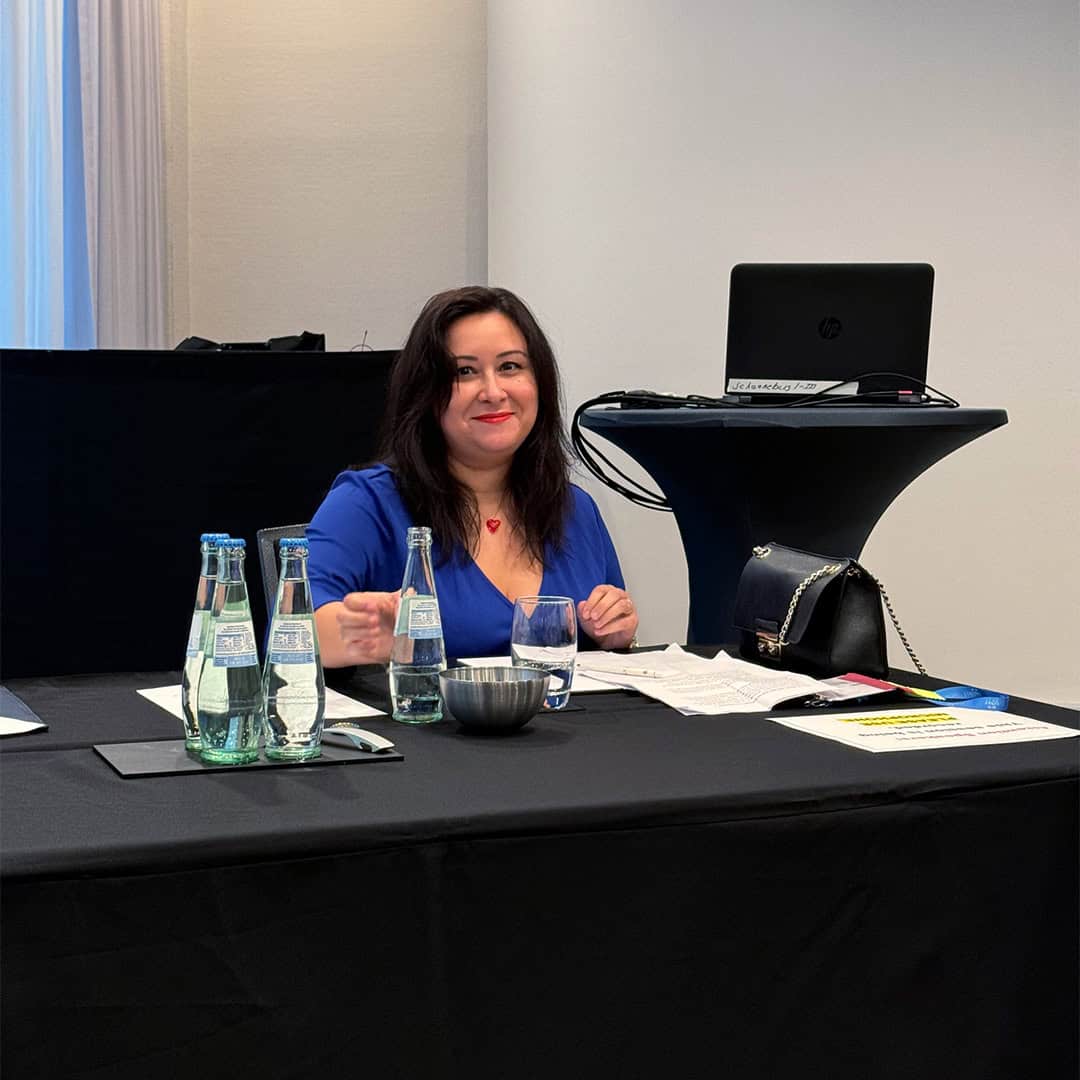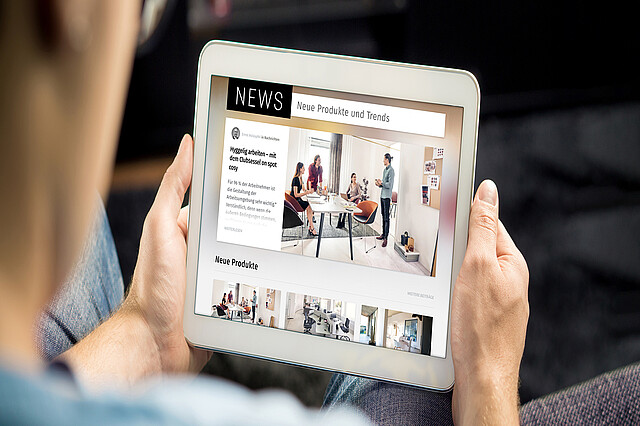Workplaces – both physical and digital – create the conditions under which such connections can or cannot develop. From the design of the offices to virtual communication platforms such as Microsoft Teams or Slack: the way we design our working environment has a significant impact on how we connect with each other. In this interview, Sinem Beaujean, Global Account Manager at Sedus, explains why human relationships at work are so important and the role the working environment plays in fostering them.

Sinem, what does a workplace bestie mean to you?
You probably already have an idea of what a work bestie is: it's not just the colleague you chat with during breaks or have a quick coffee with, but rather a person who understands the unspoken pressures of the job, makes the daily grind more bearable and makes you feel seen and supported.
But what's important to note is that the environment in which these relationships flourish is just as significant as the friendship itself. That's why I emphasise “workplace” bestie – the workplace itself plays a significant role in nurturing these bonds. A work environment can foster connections or create barriers. Think back to the places where you've formed close relationships. Were they open and welcoming, or rather sterile and isolating? Whether virtual or physical, the design and atmosphere of the workplace has a huge influence on interpersonal interactions.
Workspaces are not just physical places – they are emotional landscapes.
From lovingly arranged drawers to cosy sofas or the virtual rooms of Teams and WhatsApp, these elements not only make our working day easier, but also strengthen our interpersonal bonds. That's why the role of spaces, including those supported by Sedus, is particularly close to my heart – otherwise I wouldn't have chosen this industry!
Why do you think human relationships are so important in the workplace?
Human relationships are the foundation of a healthy and productive work environment. Strong relationships among employees lead to better communication, more effective collaboration and higher job satisfaction. A 2022 Gallup study showed that only 20% of U.S. employees reported having a close friend at the office. Yet those who do are twice as likely to be engaged and significantly more productive. Employees with close friends at work are 27% more likely to feel connected to their company's values and goals, and are less likely to experience burnout or leave their jobs. This illustrates how directly human relationships can influence business success.
To foster such bonds, companies need to create the right environment. The WELL Building Standard emphasises the importance of spaces that promote social interaction and well-being. Spaces that prioritise comfort and health also support meaningful connections between employees. From break rooms to community spaces, workplace design plays a key role in fostering relationships.
Organisations recognised by the Best Workplaces Awards also prioritise the fostering of strong social bonds. They recognise that creating a sense of community and belonging is just as important as commercial achievements. These companies create environments that encourage interaction, trust and camaraderie.
On a practical level, Sedus understands the importance of supporting connections through thoughtful design. Our furniture – such as the pieces presented at ORGATEC – transforms spaces and encourages informal interactions. With flexible, ergonomic and comfortable designs, Sedus helps create environments where people can meet, collaborate and develop friendships in the workplace.
Ultimately, human relationships are central to both individual well-being and organisational success, and the spaces in which we work are integral to fostering those relationships.
Do you have any tips on how to build strong relationships in the workplace despite working remotely?
Building strong relationships in a hybrid or remote work environment takes conscious effort. Start by creating informal moments of connection, such as virtual coffee breaks or casual conversations on platforms like Teams or Slack. Start meetings five minutes early or use the first few minutes for a quick check-in with everyone in the room. These seemingly trivial conversations are of great importance in maintaining the human aspect in virtual interactions. After all, you wouldn't go without greeting and asking about the well-being of the people you meet in person – so why do it online?
Be proactive in your interactions with colleagues, not just in work matters but also in sharing a laugh or offering support. I am grateful for my colleague Benoît, who always takes time to check in and see how I am doing, and for Fifi, who immediately notices when I am not at my usual best. Such small gestures create deeper connections. Also, keep your camera rolling in virtual meetings – non-verbal signals like facial expressions and gestures are crucial for bonding. Simone Heng, an expert in human relations, emphasises that showing your hands in virtual meetings calms the subconscious by reducing a fear that our reptilian brain has retained from earlier times – when hidden hands signalled a threat.
Your own work environment also plays an important role, even when working remotely. Ergonomic furnishings – with a comfortable chair, a well-positioned monitor and optimal lighting – can have a major impact on your engagement and enjoyment of video conferencing. Sedus offers ergonomic solutions that help you stay focused, productive and connected in both the office and at home. This is especially important when working from home.
Don't forget the importance of face-to-face meetings either. Whenever possible, take the opportunity to meet physically to strengthen the bonds that digital tools cannot fully replace. Regular team meetings, even quarterly, help to maintain these valuable human connections.
While working remotely presents challenges, it is still possible to build and maintain strong relationships with intentional communication and the right tools. A combination of thoughtful connection methods and ergonomic work environments can ensure that distance doesn't lead to estrangement.
Sinem's presentation on workplace besties won first place in the Speaker Slam at the CoreNet Global EMEA Summit 2024 in Berlin.
social media channels:


